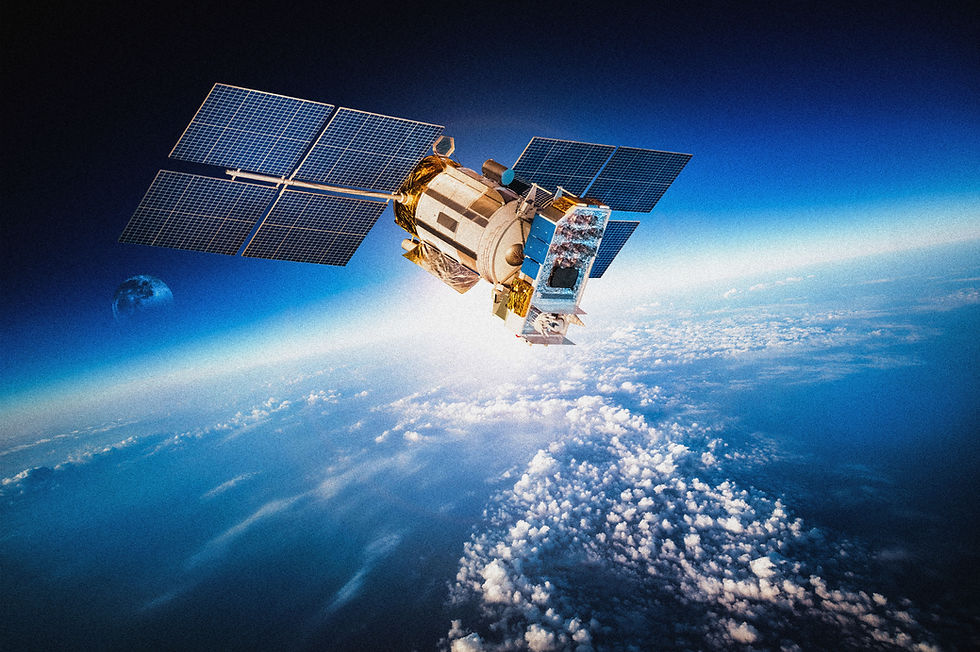The Future of Space Exploration:
- The Moolah Team
- Jun 23, 2023
- 6 min read
Challenges and Opportunities.
Space exploration has always been an exciting topic for scientists and the general public alike.
But with recent advancements in technology and the increasing interest in space travel, it's clear that the future of space exploration will be one of the most exciting and challenging endeavours of our time.
In this blog, we'll explore the various challenges and opportunities that await us in the future of space exploration.
I. Introduction: Exploring the Exciting and Challenging Future of Space Travel
Space travel has always been a topic that has captured the imagination of the public. From the first humans to set foot on the moon to the countless scientific discoveries made by orbiting telescopes and rovers, space exploration has shown us just how vast and awe-inspiring the universe truly is.
As we look to the future of space travel, it is clear that there are both exciting opportunities and unprecedented challenges that await us. From the exploration of new planets and moons to the development of new technologies and industries, space travel has the potential to transform our world in ways that we cannot even begin to imagine.
At the same time, the challenges of space travel cannot be ignored. The harsh and unforgiving environment of space presents unique challenges to our technology and our bodies, and the costs associated with space exploration can be daunting.
Despite these challenges, however, the future of space travel remains bright. With the continued advancements in technology, the involvement of private companies in space exploration, and the increasing interest in space tourism and colonization, we are poised to achieve new milestones in our quest to explore the universe.
As we delve deeper into the exciting and challenging future of space travel, it is essential to consider the importance of space exploration, the challenges we must overcome, and the opportunities that lie ahead. By doing so, we can gain a deeper understanding of the significance of space travel and its potential to shape the future of our world.

II. The Importance of Space Exploration: Discovering the Unknown
Space exploration is not just about satisfying our curiosity about what lies beyond our planet. It has become an essential tool for advancing science and technology and addressing some of the most pressing issues facing our world today.
One of the most significant benefits of space exploration is the wealth of scientific knowledge it provides. By studying other planets, stars, and galaxies, we gain a better understanding of the universe's fundamental principles and its origins. This knowledge can lead to ground-breaking discoveries that can change the course of scientific research and revolutionize industries such as medicine, materials science, and energy.
Space exploration has also enabled us to address some of the most pressing environmental issues on our planet. For example, satellites can monitor climate patterns, measure sea levels, and track the movement of glaciers, providing valuable data for climate change research. Additionally, the development of space-based solar power systems could provide a clean and sustainable source of energy for our planet.
Furthermore, space exploration has the potential to inspire the next generation of scientists, engineers, and explorers. By demonstrating the power of human ingenuity and our ability to overcome seemingly insurmountable challenges, we can encourage young people to pursue careers in science and technology and make the next generation of ground-breaking discoveries.
In summary, the importance of space exploration cannot be overstated. It provides us with invaluable scientific knowledge, addresses environmental challenges, and inspires the next generation of explorers and innovators. The future of space travel offers many opportunities to continue to expand our knowledge and capabilities, and it is essential that we continue to invest in this vital endeavour.

III. Challenges of Space Exploration: Overcoming the Unknown
While the benefits of space exploration are numerous, there are also significant challenges that must be overcome. Space is an unforgiving environment, and the obstacles presented by long-term space travel are many.
One of the primary challenges facing space exploration is the physical toll it takes on the human body. Astronauts who spend extended periods in space can experience a variety of health problems, including muscle and bone loss, vision impairment, and even radiation exposure. Developing technologies to mitigate these effects and ensure the long-term health of astronauts is a critical area of research.
Another significant challenge is the cost of space travel. Space missions are expensive, and the high cost of entry has limited the number of countries and companies involved in space exploration. However, the increasing involvement of private companies, such as SpaceX and Blue Origin, is lowering the cost of access to space, making it more accessible and encouraging greater innovation.
Additionally, the harsh conditions of space require the development of specialized equipment and technology. Spacecraft must be able to withstand extreme temperatures, radiation, and the vacuum of space, and must also be designed to function in low-gravity environments. Developing the necessary technologies to explore and colonize space is an ongoing process that requires significant investment and innovation.
Finally, there are legal and ethical challenges associated with space exploration. The Outer Space Treaty of 1967 established the legal framework for space exploration and prohibits the militarization of space. However, as more countries and companies become involved in space travel, there is a growing need for new regulations and guidelines to govern the use of space.
In conclusion, the challenges of space exploration are numerous and complex, but they must be overcome if we are to continue expanding our knowledge of the universe and pushing the boundaries of human exploration. By investing in research and innovation, developing new technologies, and addressing legal and ethical concerns, we can pave the way for a bright future of space exploration.

IV. Opportunities in Space Exploration: Unlocking the Potential
Despite the challenges that come with space exploration, there are also numerous opportunities that await us in the cosmos. From advancing scientific knowledge to enabling new forms of commerce, space exploration has the potential to transform our society and drive progress in a wide range of fields.
One of the primary opportunities presented by space exploration is the potential to advance our understanding of the universe. Through space telescopes and other instruments, we have already made numerous discoveries about the origins and evolution of our universe. Continued exploration and study of space will enable us to unlock even more secrets and deepen our knowledge of the cosmos.
Another significant opportunity lies in the potential for space-based commerce. The development of space tourism, asteroid mining, and satellite-based communication and observation systems are just a few examples of how space-based industries could revolutionize our economy and way of life.
Furthermore, space exploration has the potential to drive innovation and technological advancement in a wide range of fields. For example, the development of lightweight and durable materials for use in spacecraft has led to the creation of new materials that have applications in everything from transportation to medicine.
Finally, space exploration also presents an opportunity to address some of the most pressing challenges facing our planet. For example, space-based observation systems can help us better understand and mitigate the effects of climate change, while the development of space-based solar power could provide a clean and sustainable source of energy for the entire planet.
In conclusion, the opportunities presented by space exploration are vast and varied. From advancing scientific knowledge to enabling new forms of commerce and addressing global challenges, space exploration has the potential to transform our world in countless ways. As we continue to explore and unlock the potential of the cosmos, we must also remain mindful of the challenges and work to overcome them in order to build a brighter future for all of humanity.

V. Conclusion: Charting a Course for the Future of Space Exploration
As we look to the future of space exploration, it's clear that we are entering a new era of human discovery and innovation. From the challenges of developing new propulsion systems and spacecraft to the vast opportunities presented by unlocking the potential of the cosmos, there is much work to be done and much to look forward to.
At the same time, it's important to recognize that space exploration is not without its risks and challenges. From the dangers of radiation and the harsh environment of space to the complex political and economic considerations involved in funding and executing space missions, there are many obstacles that must be overcome if we are to succeed in our quest to explore the cosmos.
Despite these challenges, however, the potential rewards of space exploration are simply too great to ignore. From advancing scientific knowledge and enabling new forms of commerce to addressing some of the most pressing challenges facing our planet, space exploration has the potential to transform our world in countless ways.
To chart a course for the future of space exploration, we must remain committed to advancing our knowledge and understanding of the cosmos, developing new technologies and materials that will enable us to reach further and explore more, and working collaboratively across national and international borders to achieve our shared goals.
Above all, we must remain curious and passionate about the wonders of the universe and the potential for discovery that lies within it. With dedication, innovation, and collaboration, we can continue to push the boundaries of what we know and what we are capable of achieving, unlocking the secrets of the cosmos and charting a course for a brighter future for all of humanity.

Thank you for taking the time to read our in-depth exploration of the challenges and opportunities facing the future of space exploration. We hope that you have found this article informative and thought-provoking, and that it has inspired you to think more deeply about the exciting possibilities that lie ahead.
If you enjoyed this post, be sure to subscribe to our newsletter to stay up-to-date on the latest news and insights from the world of science and technology. And as always, we appreciate your support and engagement with our content.
Thanks for reading, and stay curious!
From Moolah







Comments